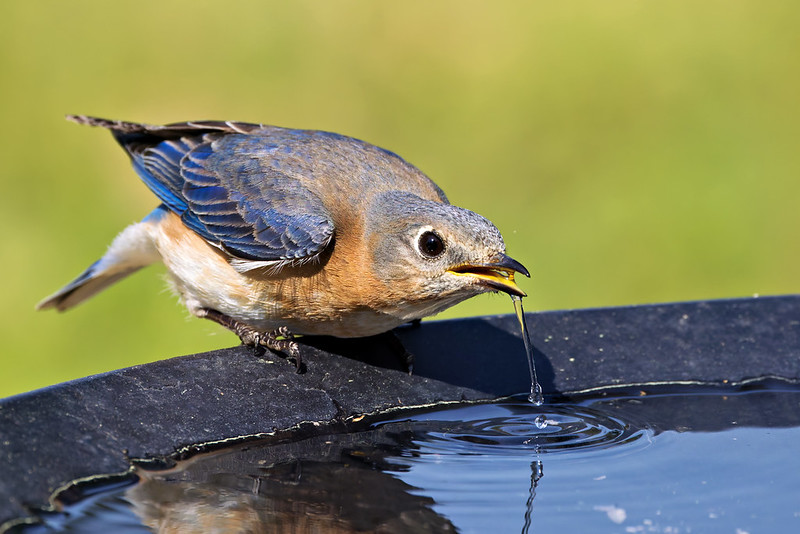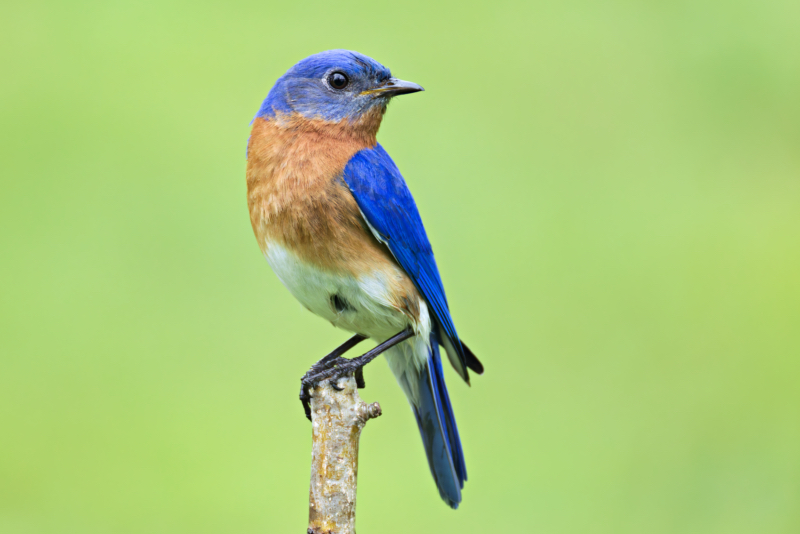Eastern Bluebirds are known for their strong pair bonds and cooperative parenting. That’s why what I’ve observed this season in my yard has been both fascinating and a bit concerning. One of my nesting Bluebirds appears to be raising her young without the help of a mate.
One Solo Bluebird Mother, One Nest
I have two Eastern Bluebird birdhouses in close proximity, both currently active with nesting pairs. On April 18th, one of the nests successfully hatched a clutch of eggs. What’s unusual is that the female at this particular nest seems to be handling all the parenting duties by herself.
Typically, the male helps feed the young and defends the territory. However, in this case, I have not seen a male bringing food to the nestlings. The female has taken on the full responsibility, feeding the chicks alone and guarding the nest as best she can.

Why This Solo Bluebird Mother Might Be Alone
I’ve occasionally seen a male bird perched near the occupied nest, but it hasn’t participated in feeding or nest defense. I suspect this male may belong to the other birdhouse, where a second pair of Bluebirds is still incubating eggs. If that’s the case, it seems likely that the original male partner of the solo female has disappeared, possibly due to predation or another unfortunate circumstance.

Interestingly, when the female first started building the nest, a male Bluebird was indeed present. His sudden absence leaves many unanswered questions but also highlights the resilience of this solo mother.
For a similar observation from last year, visit: Bluebird Mom Missing Mate Cares for Chicks Alone
The Demands of Single Parenting
Raising a brood without a mate is a monumental task for a Bluebird. Feeding multiple nestlings requires constant foraging, and without a partner, the female must leave the nest frequently, increasing the vulnerability of her young to predators or starvation.

Still, this determined female continues her efforts. I’ll be monitoring the situation closely and documenting her progress. Nature can be unpredictable, but it’s moments like this that make wildlife observation so rewarding.
Follow the Full Story:
This blog post is just the beginning of a remarkable Bluebird nesting journey. If you’d like to continue following this story, here are all the follow-up updates documenting what happened next: